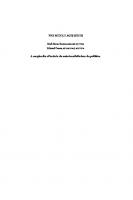William Caxton And English Literary Culture 9781472599322, 9781852850517
No extract of this content is available for preview
202 54 37MB
Pages [325] Year 1991
Recommend Papers

- Author / Uploaded
- N.F. Blake
File loading please wait...
Citation preview
Caxton and Court& Style
I N this paper I should like to consider how Caxton reacted to contemporary trends in literary English and what information this yields us about the development of fifteenth-century English prose. Those who have commented on Caxton's attitude to the literary language have usually been content to review the opinions found in h s prologue to Eneydos. But Eneydos was one of the last books he ~rinted,and the prologue represents the culmination of his views about English which had been developing over the previous twenty years. Consequently a juster appreciation of Caxton's attitude towards English may be obtained by examining his prologues and epilogues in the order in which they were written, for not only are his final views of interest, but also the influences which caused his opinions to change in the way they did are important for an understanding of the fifteenth century. So I shall commence by tracing briefly the development ofhis opinions. We must naturally start with the History of Troy, the first English book to be printed. In his various prologues to ths work, Caxton claimed that he took pleasure in the 'fayr langage of for the original was written 'in prose so well and Frenshe' compendiously sette and wreton, whiche me thought I vnderstood the sentence and substance of euery mater' (4). When he had completed some of his translation he showed it to Margaret of Burgundy who found fault with his English. What criticism she made is not revealed, though it is more than likely she thought the style not sufficiently ornate. As it was, Caxton claimed that he followed the original as closely as he could, but nevertheless the
(4,'
The references in brackets after Caxtonian quotations are to pages in W. J. B. Crotch, The Prologues and Epilogues of William Caxton, EETS O.S. 176 (London, 1928). I have, however, modernized the punctuation.
![Symbolic Caxton: Literary Culture and Print Capitalism [1 ed.]
026803317X, 9780268033170](https://ebin.pub/img/200x200/symbolic-caxton-literary-culture-and-print-capitalism-1nbsped-026803317x-9780268033170.jpg)








